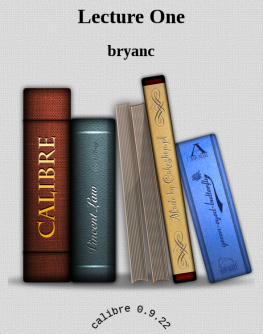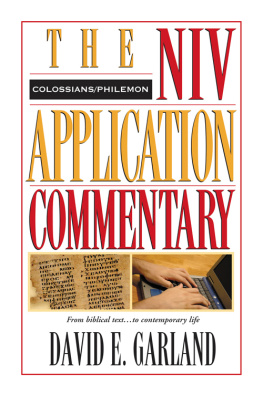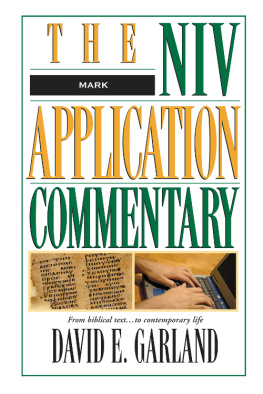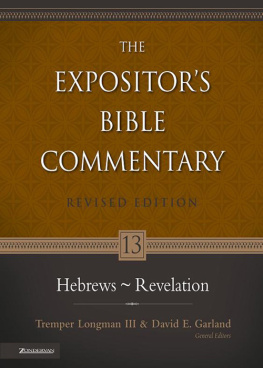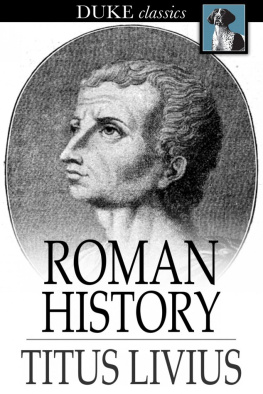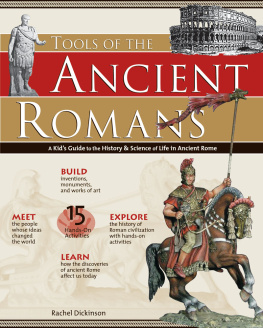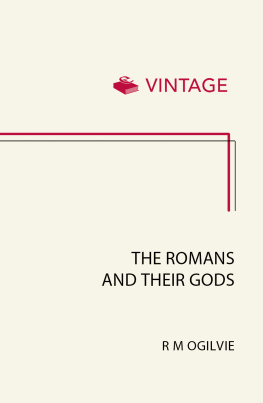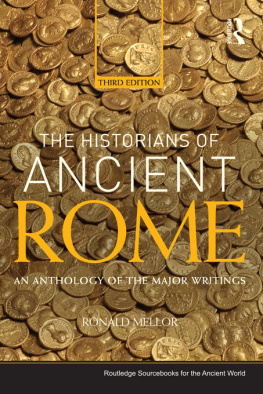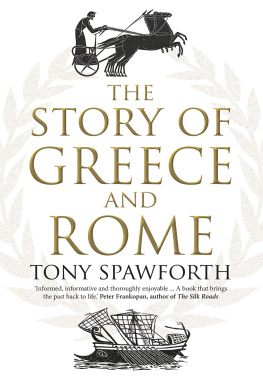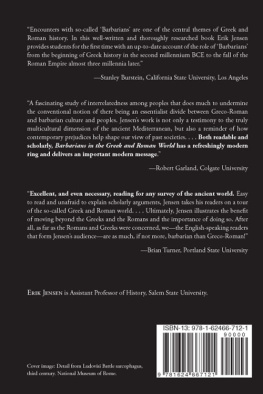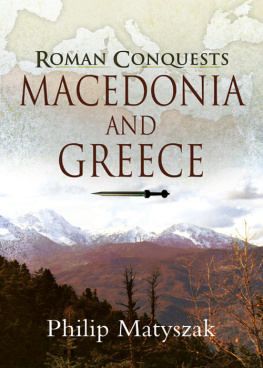

Greece and Rome:
An Integrated History
of the Ancient Mediterranean
Part I
Professor Robert Garland
THE TEACHING COMPANY
PUBLISHED BY:
THE TEACHING COMPANY
4151 Lafayette Center Drive, Suite 100
Chantilly, Virginia 20151-1232
1-800-TEACH-12
Fax703-378-3819
www.teach12.com
Copyright The Teaching Company, 2008
Printed in the United States of America
This book is in copyright. All rights reserved.
Without limiting the rights under copyright reserved above,
no part of this publication may be reproduced, stored in
or introduced into a retrieval system, or transmitted,
in any form, or by any means
(electronic, mechanical, photocopying, recording, or otherwise),
without the prior written permission of
The Teaching Company.
Robert Garland, Ph.D.
Roy D. and Margaret B. Wooster Professor of the Classics
Colgate University
Professor Robert Garland is Roy D. and Margaret B. Wooster Professor of the Classics at Colgate University, where he is currently serving his 13th year as Chair of the Department of the Classics, and where since 2006 he has also served as Director of the Division of the Humanities. He received his B.A. in Classics from The University of Manchester in 1969, where he graduated with First Class Honors. He obtained his M.A. in Classics from McMaster University in Ontario in 1973 and his Ph.D. in Ancient History from University College London in 1981. He is the recipient of the George Grote Prize in Ancient History (1982). He was a Fulbright Scholar and Junior Fellow at the Center for Hellenic Studies in Washington, DC (19851986), and a visiting scholar at the Institute for Advanced Study at Princeton (1990). He has taught at the University of Reading, the University of London, Keele University, and the University of Maryland at College Park. He was also the Benjamin Meaker Distinguished Visiting Professor at the University of Bristol (1995).
His research focuses on the social, religious, political, and cultural history of both Greece and Rome. He has written 10 books and many articles in both academic and popular journals. His books include The Greek Way of Death (2nd ed., Bristol Classical Press, 2001); The Piraeus: From the Fifth to the First Century B.C. (2nd ed., Bristol Classical Press, 2001); The Greek Way of Life: From Conception to Old Age (Duckworth and Cornell, 1990); IntroducingNew Gods: The Politics of Athenian Religion (Duckworth, 1992); Religion and the Greeks (Bristol Classical Press, 1994); The Eye of the Beholder: Deformity and Disability in the Graeco-Roman World (Duckworth and Cornell, 1995); Daily Life of the Ancient Greeks (Greenwood, 1998; Greek translation, 2001); Surviving Greek Tragedy (Duckworth, 2004); Julius Caesar (Bristol Phoenix Press, 2004); and most recently, Celebrity in Antiquity: FromMedia Tarts to Tabloid Queens (Duckworth, 2006). He has been a consultant and discussant for several television productions on the ancient world.
2008 The Teaching Company.
i
Table of Contents
Greece and Rome: An Integrated History of the Ancient Mediterranean
Professor Biography .....................................................................................................................................................i Course Scope................................................................................................................................................................1
Lecture One
Who Were the Greeks? Who Were the Romans?.................................................2
Lecture Two
Trade and Travel in the Mediterranean ................................................................4
Lecture Three
Democratic
or Republican....................................................................................6
Lecture Four
Law
and
Order......................................................................................................8
Lecture Five
Less than Fully Human.......................................................................................10
Lecture Six
Close
Encounters, 750272 B.C.........................................................................12
Lecture Seven
The Velvet Glove, 272190 B.C........................................................................14
Lecture Eight
How the Two Polytheisms (Almost) Merged.....................................................16
Lecture Nine
The
Iron
Fist, 190146 B.C................................................................................18
Lecture Ten
The Last Hellenistic Dynasts, 14631 B.C.........................................................20
Lecture Eleven
Why the Greeks Lost, Why the Romans Won....................................................22
Lecture Twelve
Philhellenism and Hellenophobia.......................................................................24
Lecture Thirteen
The Two Languages ...........................................................................................26
Lecture Fourteen
Leisure and Entertainment..................................................................................28
Lecture Fifteen
Sex and Sexuality ...............................................................................................30
Lecture Sixteen
Death and the Afterlife .......................................................................................32
Lecture Seventeen
From Mystery Religion to Ruler Cult.................................................................34
Lecture Eighteen
Greek Cities under Roman Rule.........................................................................36
Lecture Nineteen
Greeks in Rome, Romans in Greece...................................................................38
Lecture Twenty
The Hellenism of Augustus ................................................................................40
Lecture Twenty-One
Art, Looting, and Reproductions ........................................................................42
Lecture Twenty-Two Architecture,
Sacred and Secular........................................................................44
Lecture Twenty-Three Science
and
Technology.....................................................................................46
Lecture Twenty-Four
Disease, Medical Care, and Physicians ..............................................................48
Lecture Twenty-Five
The Greek Epic and Its Roman Echo .................................................................50
Lecture Twenty-Six
Tragedy and Comedy ........................................................................................52
Lecture Twenty-Seven Love
Poetry,
Satire,
History, the Novel..............................................................54
Lecture Twenty-Eight
Next page
